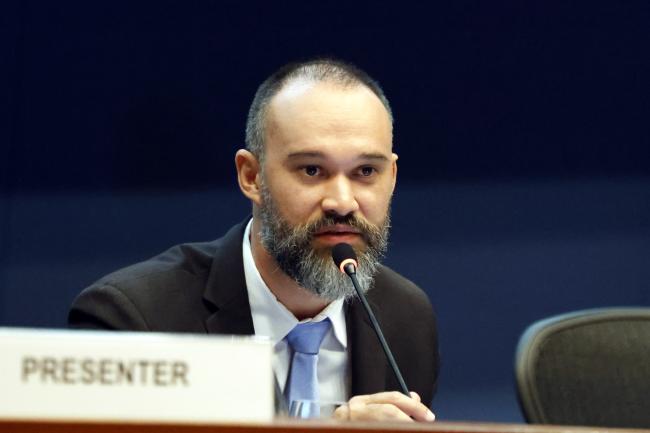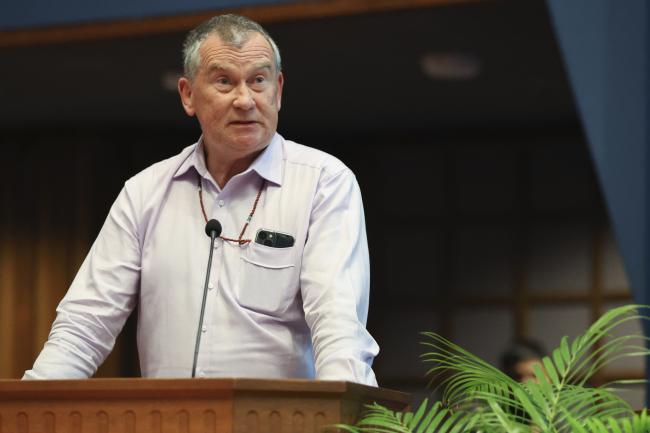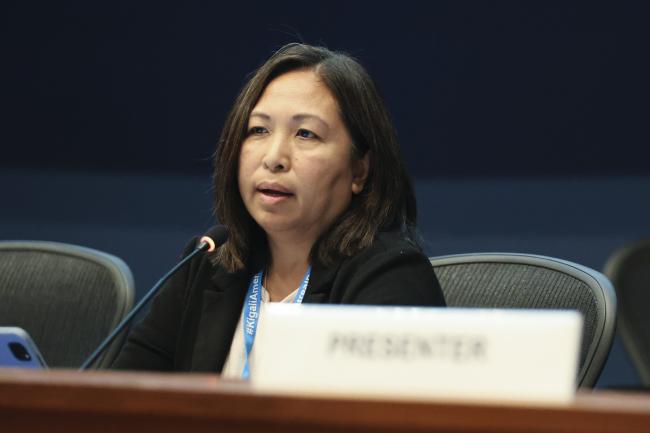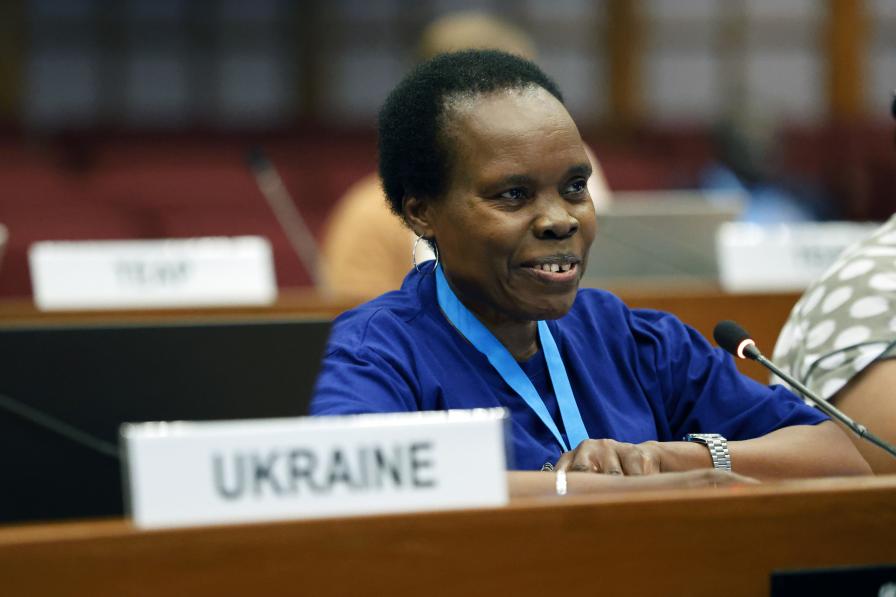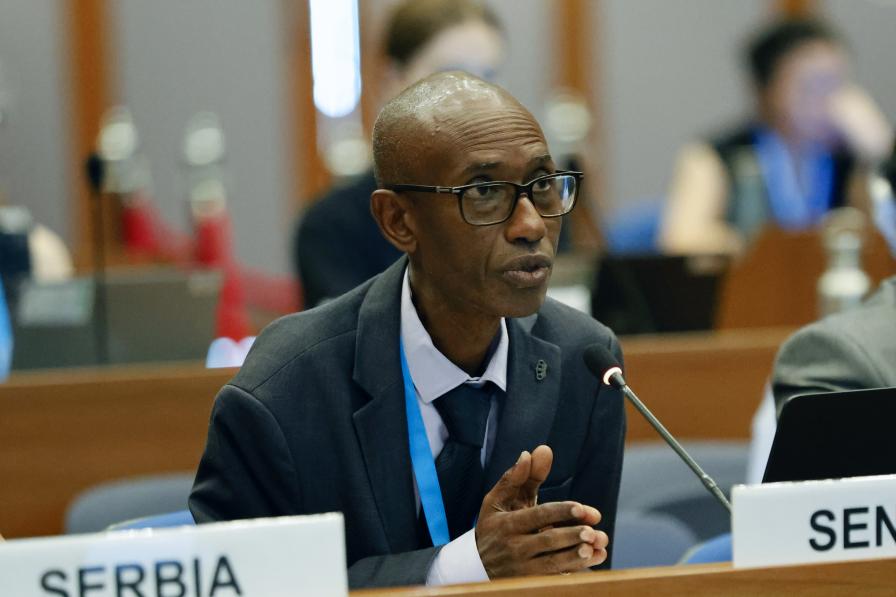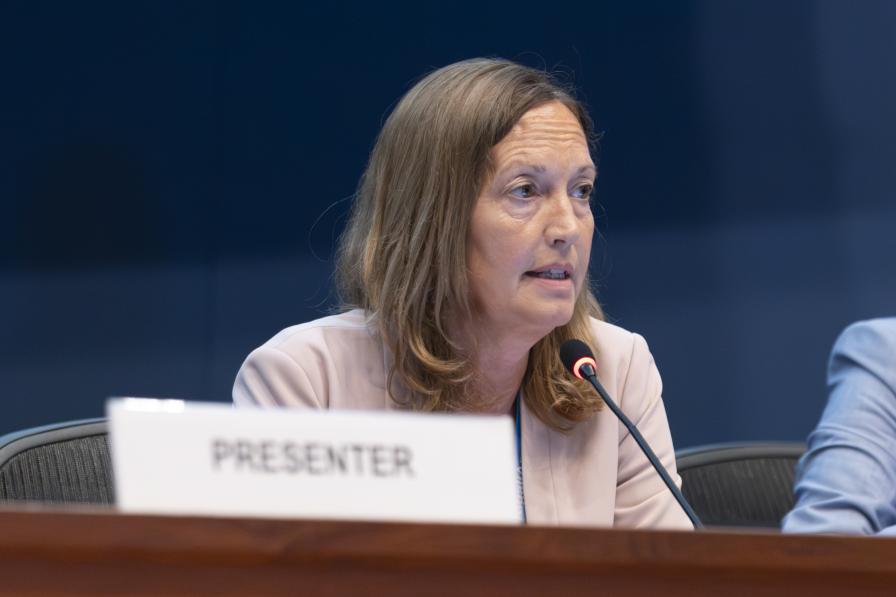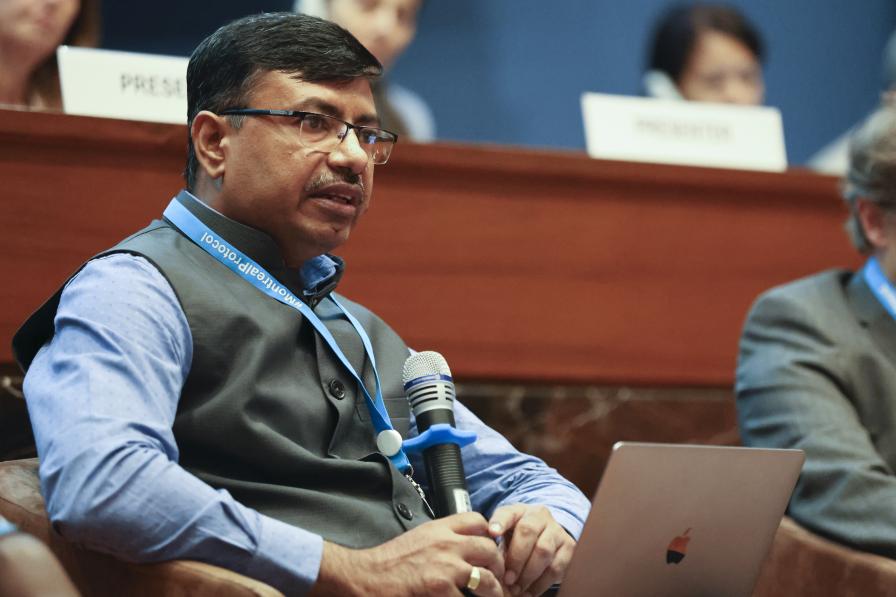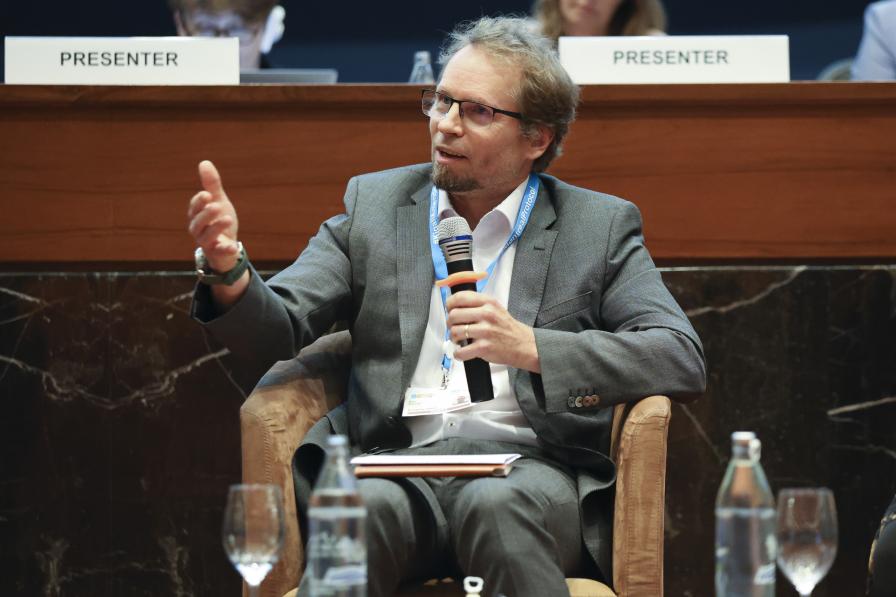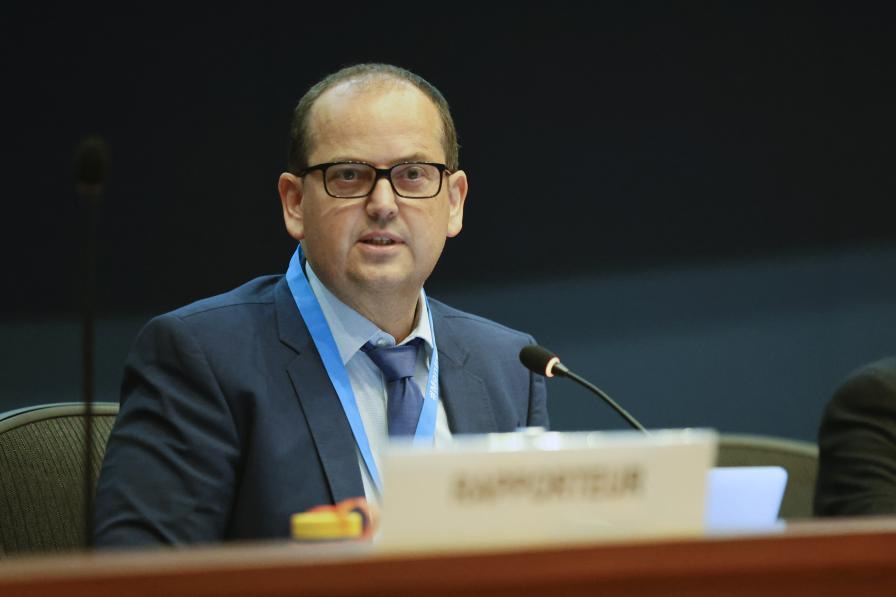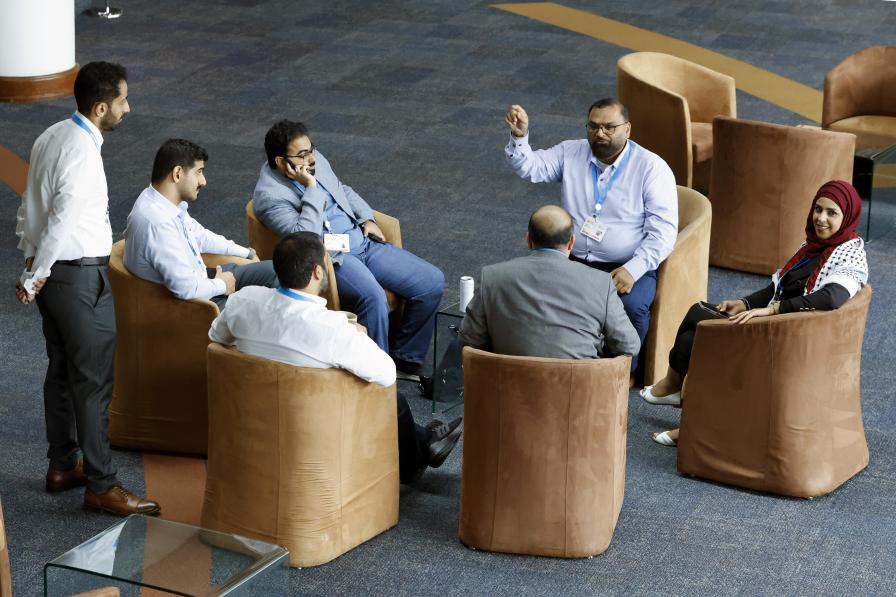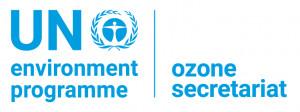Workshop on strengthening the effective implementation and enforcement of the Montreal Protocol
“How can we strengthen the implementation of the most successful environmental agreement in the world?” This was the question on the minds of participants attending the Workshop on strengthening the effective implementation and enforcement of the Montreal Protocol, in Bangkok, Thailand on Sunday, 2 July 2023.
The Workshop allowed participants to share national experiences and pose questions on issues including combatting illegal trade, strengthening licensing and quota systems, and enhancing measures to implement and enforce the Montreal Protocol.
In her opening remarks, Megumi Seki, Executive Secretary, Ozone Secretariat, noted that the work of the Montreal Protocol is not yet done, and that a higher level of ambition will be required to exploit its maximum potential to obtain benefits to the ozone layer, environment, and climate.
Delegates then dived into the day’s heavy agenda. They began by addressing illegal trade in controlled substances, facilitated by Anderson Alves, UN Development Programme (UNDP).
Liazzat Rabbiosi, Ozone Secretariat, gave a summary of illegal trade practices reported as well as approaches taken by national authorities to identify and address such cases. She presented 559 reported cases of illegal trade over a period of 20 years, estimating a total quantity of illegally traded substances equal to 1,781MT of controlled substances.
Cindy Newberg, US, spoke about domestic practices to enforce the US hydrofluorocarbons (HFCs) licensing and quota system through an inter-agency task force. Alisi A. Kamaiwaqa, Fiji, presented on the licensing of foreign-flagged fishing vessels in relation to controlled substances.
Anna Ewa Kobylecka, World Customs Organization (WCO), introduced participants to the Advance Cargo Information procedure and reflected on implementing surveillance in Free Zones. Pipat Poopeerasupong, OzonAction, presented on the voluntary informal Prior Informed Consent (iPIC) mechanism that facilitates information exchange on intended trade in controlled substances.
In the ensuing discussion, participants considered, among others: differences in enforcement measures related to illegal use and trade in controlled substances; how to ensure inter-agency cooperation to address illegal trade; the need for training of customs personnel in order to address illegal trade; the ease of conducting post-clearance audits by customs and other officials; and the nature of customs checks on foreign-flagged vessels.
On licensing and quota systems, Facilitator Tatiana Terekhova, Basel, Rotterdam and Stockholm Conventions Secretariat, highlighted the dual gains to the ozone layer and climate in the implementation of the Montreal Protocol through effective licensing systems. Maud Barcelo Martinez, Ozone Secretariat, presented an overview of common features of licensing systems.
Xiaolin Guo, China, presented the country’s licensing/quota system and use of iPIC, noting that since joining the iPIC mechanism in 2010, the country has prevented potential illegal trade of about 8,000 tonnes of controlled substances. Cornelius Rhein, European Commission, presented the EU’s licensing system for ozone depleting substances (ODS) and HFCs, introducing a future licensing system, with simplified ODS licensing.
Yaqoub Almatouq, Kuwait, shared his country’s experience with its quota system for HFCs based on lessons learned from phasing out chlorofluorocarbons (CFCs) and hydrochlorofluorocarbons (HCFCs). Emmanuel Osae-Quansah, Ghana, highlighted how Ghana monitors substances at all entry points including ports and markets with an Integrated Customs Management System to prevent illegal trade.
In the ensuing discussion, participants considered, among several others: the challenges of setting up licensing systems, noting the need for these systems to be fit-for-purpose and easy to use by customs offices; the need to link market surveillance, environment, and customs officials to enhance cohesive implementation; and how to address new quota applications.
They then engaged in a robust discussion on implementation and enforcement of the Protocol, facilitated by Jim Curlin, Head of OzonAction, UN Environment Programme (UNEP). In her remarks, Tina Birmpili, Chief Officer of the Multilateral Fund (MLF) Secretariat, encouraged participants to think “outside the box” to strengthen the effectiveness of the Protocol, highlighting the potential of new technologies, including blockchain and artificial intelligence (AI), to strengthen existing mechanisms.
Renée Gift, Law Division, UNEP, stressed that enforcement measures need to include a broad combination of legal tools and be appropriate for the given circumstances. Ioana Cotutiu, Unwaste, UN Office on Drugs and Crime (UNODC), presented the UNODC-WCO Container Control Programme, focusing on capacity building tools that are being employed on a project focused on waste flows between the EU and four of the largest Association of Southeast Asian Nations (ASEAN) country importers of waste.
Clare Perry, Environmental Investigation Agency, focused on, among others, the challenges for implementation, such as simultaneous HCFC phase-out and HFC phase-down controls within a growing and complex global refrigerants market, which makes reporting both critical and difficult.
Shontelle Wellington, Barbados, presented on capacity building and training of national officers, attesting to their positive impact in enhancing awareness and capabilities. Kevin Fay, Executive Director, Alliance for Responsible Atmospheric Policy, talked about the role of industry in creating a culture of compliance, stressing that it takes a small number of illegal activities to disrupt the environment.
Gene Smilansky, President of the Implementation Committee (ImpCom), shared key functions of the Committee in facilitating implementation at domestic and international levels.
Samuel Paré, Burkina Faso, highlighted the need to engage key stakeholders in implementing the Protocol such as ministries in charge of regulating trade and other economic activities as well as key peak bodies from the refrigeration and air conditioning sector.
Aditya Narayan Singh, Ministry of Environment, Forest and Climate Change, India, underscored the importance of businesses being registered and reporting on ODSs and HCFs. Arno Kaschl, European Commission, advocated for involving the ImpCom more closely, considering minimum requirements for licensing, and sharing best practice.
Annie Gabriel, Australia, stressed how important it is to build a good relationship with regulated importers, not only to build their capacity, but also to obtain intel about unregulated actors illegally competing in their market.
In the ensuing discussion, participants spent some time addressing issues related to compliance, specifically illegal imports or “dumping” of ODS-containing equipment, with several developing states querying the sources of the illegal material. They also addressed the sources, destinations, and types of waste of the Container Programmes as well as the need to enhance relations between governments and Protocol bodies, to encourage and offer compliance assistance; and discussed comparisons between developing and developed country parties in establishing licensing systems.
During the final session of the day, they discussed other considerations related to the future of the Montreal Protocol, including those regarding detection and verification of unexplained emissions of controlled substances, trade in equipment, environmentally sound management (ESM) of ODS banks, and iPIC.
Patrick McInerney, Australia, referred to growing emissions from feedstock, uncontrolled chemicals and banks, and hinted to voluntary and market-based action that could complement regulation.
Stephen Montzska, US, explained that we need to have both well-quantified emissions and well-defined expectations to ensure effective action under the Protocol.
Tatiana Terekhova, BRS Secretariat, explained the Prior Informed Consent (PIC) procedures for hazardous wastes and chemicals under the Basel and Rotterdam conventions, and drew parallels to similar challenges under the Montreal Protocol.
Bella A. Maranion, Technology and Economic Assessment Panel (TEAP) Co-Chair, spoke about the implementation of end-of-life ODS/HFC management, for which the Protocol provides very few provisions, and underscored that effective management of ODS banks maximizes recovery, recycling, reclamation, and reuse, over destruction.
Jianxin Hu, China, presented on various “exemptions” under the Montreal Protocol and opportunities for reducing emissions, presenting a comparison between the 2006 IPCC Guidelines for National Greenhouse Gas Inventories and their 2019 refinement, noting that these illustrate an increase of emissions from chemical production processes from 8.5 MtCO2-e to 68 MtCO2-e.
In the ensuing discussion, participants considered, among many others, the differences in notification procedures and effectiveness between the Protocol’s iPIC mechanism and the PIC procedures under the Basel and Rotterdam Conventions; whether obsolete equipment under the Montreal Protocol could be considered under the listed elements of the Basel Convention; the need to focus on longer-term challenges to the Protocol including emissions from feedstocks, ozone solutions for climate benefits, and atmospheric monitoring; and the costs for establishing and maintaining intensive monitoring stations.
After a brief wrap-up by the session rapporteurs, Maria Socorro Manguiat, Deputy Executive Secretary, Ozone Secretariat, informed participants that the outcome of the workshop would feed into the forty-fifth meeting of the Open-ended Working Group of the Parties to the Montreal Protocol (OEWG 45), and closed the session at 6:30 pm.
To receive free coverage of global environmental events delivered to your inbox, subscribe to the ENB Update newsletter.
All ENB photos are free to use with attribution. For the 45th meeting of the Open-ended Working Group of the Parties to the Montreal Protocol (OEWG45), please use: Photo by IISD/ENB | Anastasia Rodopoulou.

